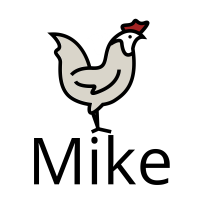I’ve never heard of these candidates, they have no party affiliation, and there’s almost no information about them online that I can find.
Are those positions just for people who work closely with those departments to vote on?
I cannot recommend this organization highly enough. They provide nonpartisan information on candidates in every state for every election.
This is a good one. I’ve also used ballotpedia. Typically I use multiple sources just by google/bing/ddg/etc searching to confirm information on the candidate. Worked extremely well last mayoral election where we kicked an incumbent out who didn’t do a terrible job but we needed a change.
Just checked this site out and it looks pretty superb on the surface. Each candidate has links to the sites and social media, their experiences and stances are aggregated there and there’s an option to contribute more information.
The true test will be to see how it handles extremely local candidates like the school board, which I struggled to find information on in the last election.
I’m not sure about school board because I don’t think we vote for those where I am. I know they reach out to candidates that don’t have easily found information and if the candidate doesn’t respond the organization says so. It’s really helpful for judges in particular because it lists all the ratings from various legal organizations.
I mean the school board is just citizens. So you’d have to like… Dig. Spokeo or a PI. Both cost money.
I’ve used vote411.org in the past and it’s done a decent enough job for me to double check local candidates and their policies ideas prior to elections. I’m willing to try others though. Any thoughts on vote411?
You should probably specify which country you’re from
The US, but why? How does the answer differ in different countries?
Prime US mentality
We’re number one at saying we’re number one
Because campaigning works differently across the globe. So does media coverage and politics and how the different parts of legislative share competence/responsibility.
I’d say you need to follow local news and what happened in the last years to make an informed decision. See which party/politicians built children’s playgrounds, did something useful for the community and which major tore down the shops in the city center to make space for more lucrative office buildings… It’s really difficult to tell if you don’t know what’s happening around you but just following world politics. (And local newspapers are long gone, so that’s another hurdle.) Where I live they have some scarce information online. And you can also go to them once they go campaigning and listen to them or read some advertising material.
A big part of my decision is the party they’re part of. At least when I never read their names before. I’m also not affiliated with one specific party, but I certainly know if I’m conservative, religious or progressive and whether I care for the environment and other people. So I can base my decisions on that and whether their party cares for the things I deem important.
Well countries have different levels of democracy
It varies everywhere, even from state to state in the US.
The US system is kind of broken - they ask you to vote for way too many things. Where I’m from I just vote for a party - I basically say “yeah, the green party are cool”, and then the party decides who to put in which position should they get enough votes. I can give a +1 to candidates I like personally, but I don’t have to.
In the US you might be asked to vote for school boards, a sheriff, and a bunch of weird positions. There’s no realistic chance you’ll make an informed decision for all of them.
Sadly, it’s very important you still vote, because the republicans are using this broken system to fill these positions with far-right lunatics. So basically seek out information as much as you can, but at the end of the day just vote for whichever Democrat is on the ballot whenever in doubt. They’re not guaranteed to be good - in fact they’re likely to be pretty bad - but they’re pretty much guaranteed to be the lesser of two evils.
Still might vary though - local politics are weird, and there are no rules set in stones. Some places you still have decent republicans on the local level (or so I’ve heard).
The local newspapers in my area send each candidate in every race a form of question that they then print. Typically it is very easy to tell which candidates understand what the that form is, there are those that don’t understand, and then there are ones that don’t return it. It’s makes choosing much easier for me. I’ll still pull of websites and check past news articles for each one I am considering.
Support your local newspapers!
First i go to vote411 (.org i think). It’s a website from the league of women voters that asks each candidate the same questions. Sometimes candidates don’t answer or are so vague that their answers are useless. Then i look to see who the local newspaper is endorsing. When both of those are unsuccessful, i find the hateful group (in Texas it’s the true Texas project), see who they endorse, and vote opposite.
I used this same tactic on other websites (mentioned in other comments) and it works extremely well. The incumbent failed to answer certain questions while a new candidate was eager to and had some really great game plans to tackle issues our city was facing. They ended up winning which was awesome and started putting policies in place that are doing good for people in the city.
I applaud OP for making an effort to get involved locally but can sympathize with their struggles. Local government elections typically have a more new candidates that don’t have a track record of experience to go back on. Additionally, there are a handful of boilerplate campaign promises that you’ll see over and over again (smart spending, lower taxes, etc). I’ve personally found some success with the following approaches:
-
Even if you don’t get a ton of info from the candidate themselves, it’s still worth it looking at their website and seeing what they choose to make the centerpiece of their campaign.
-
Look up your local Democratic and Republican Party websites and see who they endorse. Often, even if a candidate is unaffiliated, the local political parties will have some insight as to who THEY would prefer. That tells you something too.
-
Try to attend local government events. You’ll learn a TON by attending a city council or school board meeting. In my local area, I’ve seen representatives half asleep or reading newspapers during discussions. At the very least, look at who takes the position seriously. Additionally, try to see who is asking smart questions, and conveys that they understand the subject matters well.
I think we should be encouraging more people for get involved locally. That’s how grassroots efforts turn into more options nationally.
I really like #3. Yes, it’s going to take more work than just searching them online but, they’re right, you will learn a lot just by seeing how involved/passionate the candidate is to actually make change for the good of others even if you disagree with some of their policies. At least you can sleep at night knowing they actually give a crap.
I’d debate the more work part. Sitting and watching vs hunting and gathering.
-
In my neck of the literal woods this has become an incredibly simplistic exercise. It used to be that I’d take the time to research their positions on specific issues… sometime even calling them up and asking questions. What party they belonged to was not always a reliable indicator of this so it was worth taking the time. But these days, where I live, we’re lucky to get even one candidate who is not a mouth breathing MAGA cult member.
So I just look up their voter registration and political contributions.
Same issues in my neck of the woods. Since they all feel the same why I tend to pick the ones that at least talk to (some) residents.
This last election, I googled the candidates and voted for the ones that hadn’t tried to ban books at the local library.
I research the name of the candidates and do research on them. Sometimes I’m left only between an R and and D so I guess I just pick D since I have no other choice. When I get multiple D then I check the campaign page, ballotpedia, wiki to see what they stand for.
Judges also the same way, although they’re a little trickier since they try not to side with any one party but some stuff may give them away you kinda just have to check their entire background.
OP:
there’s almost no information about them online that I can find.
Response:
I research the name of the candidates and do research on them
I guess at that point, they must’ve done a shit job at campaigning. Vote for one with a D I guess
Everyone else gave good advice. Also, if you have a group you support, like the ACLU or the EFF, they often have recommendations.
This. The League of Women Voters is really good at doing summaries about candidate positions. And while they obviously have an agenda, they tend to be pretty level-headed about their analyses, and avoid rhetoric.
Of course they have agenda. Thay aren’t called “The League of Nonbinary Voters”.
This works particularly well if you’re mostly a single issue voter. If you’re about the environment above all else, for instance, the Sierra Club’s recommendations are pretty solid. If it’s guns, guns and only guns, the NRA is your group.
For small local races you might have to do some homework yourself though, Sierra Club doesn’t always discuss who is running for your local school board.
They’ll usually have a website and other online presences that’ll let you get a sense for what they stand for. If its a really, really small community, maybe just send them an email or phone call and ask them.
Different countries have different sources of information about candidates.
I don’t live in the US but absorb quite a lot of political media from there. Number 1 rule is not to back Republicans, especially if you can’t find much information on them. There are Republicans up and down the ballot who are trying to implement a Christian Nationalist agenda, many of them on the down-low, and if you have no evidence either way it’s better to assume they are.
Next step is to google/bing/ddg the ones you’re considering and see what you can dig up on them and their opinions. Do they have a history of unsavoury social media posts? Do they go to church? Who is their pastor? What do they stand for? Are they incumbent, or have they previously held office? What did they say / vote for before?
Thank you for taking an interest in local and down-ballot races. Your participation is vital to keep fascists and lunatics out of school boards and sherrif’s offices.
You can also research their endorsements. Does a candidate have endorsements from local unions, newspaper, other public servants? Do you trust the endorser?
As you continue to vote and follow these local elections, you will get better at learning about them. The best thing to do is to be involved yourself. If you become active with civic organizations, you’ll be more connected to what is happening with local leadership (churches, cleanup groups, food bank, trade groups, etc.). Basically see if you can volunteer wherever you usually donate locally.
I just call them up for a chat. At the local level they’re usually super excited that anybody cares.
Have you considered talking to them? Yeah it might take time but depending on how local, they’d probably love to meet for coffee or something.
The League of Women Voters in your area will usually have in-depth info on candidates and issue on your ballot.
Campaign materials and newspaper articles. In the US, it’s pretty rare even for small communities, not to find at least some of this information online.
What I can find all say seem to say more or less the same things about every candidate.
Do they have the exact same amount of experience as well?
Like, even if their platforms are the same, they probably have different backgrounds and accomplishments.
Thank you for mentioning experience. Voting on local elections is basically being in charge of a job interview. In a lot of cases, their stance on policy issues matters far less than their ability to do the job well.
I would look up your local paper specifically, if you haven’t already. They aren’t always going to show up in search results.
My local paper often does a brief “meet the candidates” piece for the city council, so you may find the same. Although they won’t have everything all the time











